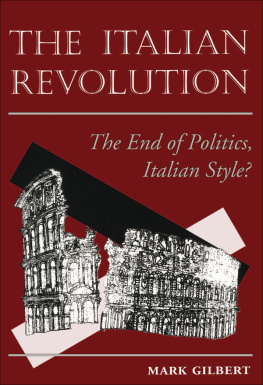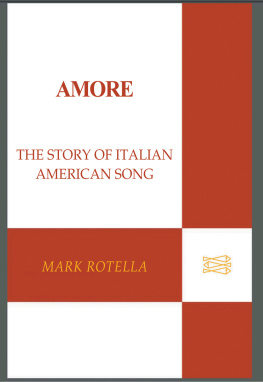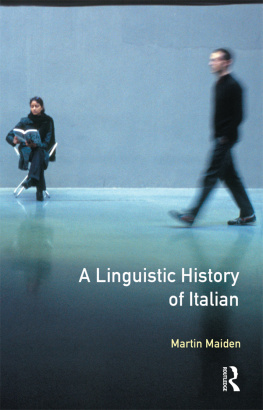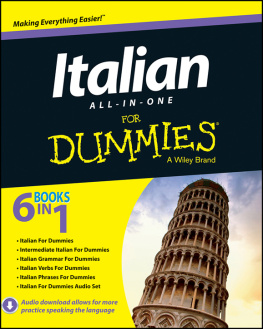The Italian Revolution
First published 1995 by Westview Press
Published 2018 by Routledge
711 Third Avenue, New York, NY 10017, USA
2 Park Square, Milton Park, Abingdon, Oxon OX14 4RN
Routledge is an imprint of the Taylor & Francis Group, an informa business
Copyright 1995 Taylor & Francis
All rights reserved. No part of this book may be reprinted or reproduced or utilised in any form or by any electronic, mechanical, or other means, now known or hereafter invented, including photocopying and recording, or in any information storage or retrieval system, without permission in writing from the publishers.
Notice:
Product or corporate names may be trademarks or registered trademarks, and are used only for identification and explanation without intent to infringe.
Library of Congress Cataloging-in-Publication Data
Gilbert, Mark.
The Italian revolution : the end of politics, Italian
style? / Mark Gilbert,
p. cm.
Includes bibliographical references and index.
ISBN 0-8133-8788-4ISBN 0-8133-2685-0 (pbk.)
1. ItalyPolitics and government 1976. 2.
Political corruptionItaly. 3. Political
partiesItaly. I. Title.
JN5451.G48 1995
320.94509049dc20
94-35984
CIP
ISBN 13: 978-0-8133-2685-6 (pbk)
The Gand War in Naples 1977-1984
Results of the June 1991 Referendum on Electoral Reform
Simulated Distribution of Seats in a 400-Seat Chamber of Deputies
The Senatorial Constituency of Milano II, Election Results: April 1992
A Comparison of Elections to the Chamber of Deputies, 1987 and 1992
The Italian Elections of March 1994
A large number of people gave me invaluable help and advice while I was researching and writing this book. Most of the research was undertaken in the libraries of the University of Trento and the Museo del Risorgimento in Trento: I would like to extend my heartfelt thanks for the kindness and flexibility shown by the staffs of both institutions. I would also like to thank Martin Bull, Stephen Heilman, Bob Nilsson, Gianfranco Pasquino and Douglas Stuart for having read and commented upon draft versions of several of the chapters included in this book. They made a large number of worthwhile suggestions and detected a number of minor errors: If any are left, it is my fault, not theirs. Bob Nilsson also most generously put his meticulously compiled card index of Italian governments and ministers 1946-1994 at my disposal.
I did my graduate work at University College, Swansea, under the guidance of George Boyce and Richard Taylor of the department of Political Theory and Government. My thesis work was on a topic very different from this, but I would like to take this opportunity to say how much I learned from them.
I need hardly add that I would like to thank my editor at Westview, Susan McEachem. She made many useful suggestions for the improvement of the book and put up with my constitutional vagueness with remarkable grace. Anne Rodman, my Charles A. Dana intern at Dickinson College, Kristofor Sargent and Dan Buchan, the Colleges resident computer wizards, assisted me in getting the manuscript into publishable shape.
My family, especially my mother and father, have been a constant source of support and encouragement. I know this book will mean a lot to them: Their having been such marvelous parents means more to me. I must also thank my wifes family, who have greeted the straniero in their midst with typical Italian warmth and affection. My love and admiration for Italy and the Italians will, I hope, be obvious from this book: It derives, in no small measure, from having been accepted into an Italian home.
The person to whom I owe the greatest debt, however, is my wife, Luciana. This book is dedicated to her.
Mark Gilbert
1
Introduction
This book grew in the telling. Its original title was the very scholarly sounding Powers that Were? The Decline of the Party System in Italy 1976-93. The pace of events soon rendered this title impossibly conservative. I toyed for a while with the idea of simply removing the question mark, but eventually came to the conclusion that Italys political convulsions were too dramatic for such small changes; the book became the Italian Revolution: The End of Politics, Italian Style? and retained the title even after the victory of Silvio Berlusconis Forza Italia movement in the national elections of March 1994.
I have tried to blend comparative politics and chronology in my narrative. The first five, essentially thematic, chapters deal with major events that occured within the Italian party political system between (approximately) 1976 and 1991. The last three chapters are an account of the tumult of the last three years.
There is no chapter that attempts to explain why the Italian party system collapsed so comprehensively. In part this is because I have not fully digested the voluminous literature on the subject; in part because I think my provisional answer to this question is clear from the narrative itself. Italys seemingly perennial political system fell apart largely because of the hubris, excess and venality of its leaders. This is not to say that outside events played no part. Hundreds of thousands of northern Italians, in particular, felt sufficiently liberated by the fall of Eastern European communism to switch their allegiance away from the Christian Democrats (the bastion of Italian anti-communism), notably in the local elections held in May 1990. The requirements of the Maastricht process and the worlds financial markets prevented Italys politicians from buying as many votes as they would have liked with public spending and inflation, though by the standards of most countries they still spent freely.
Yet neither of these events (and the first, especially, has been loaded with significance by a number of writers), in my view, was decisive. More important, I think, was an enormous miscalculation made after the end of the Cold War by the parties of government. The Christian Democrats and the Socialists, in particular, appear to have assumed that the domestic effects of the 1989 revolution in Europe would be beneficial for them. The Italian Communist Party, the chief party of opposition, was immediately plunged into a profound and potentially terminal identity crisis by the events of 1989. To judge by the unscrupulousness with which the government-controlled media used the Communist Partys pro-Stalinist past during the 1992 election campaign, the parties of government must have been thinking that the Communist Partys successor, the so-called Democratic Party of the Left, could be stifled at birth by the judicious use of propaganda. Other political forces, notably the Northern League, the free-market, federalist movement founded and led by the iconoclastic Umberto Bossi, were not regarded as being of sufficient stature to fill the gap left by the Communist Party. The leaders of the Christian Democrats and the Socialists therefore felt authorized to ignore growing evidence that the electorate was growing increasingly scandalized at the political systems inefficiency, corruption and chaos, and disgusted by the pervasive influence of organized crime within the political process. This was despite the fact that the president of Italy, the eccentric but undeniably acute Francesco Cossiga, was warning the parties to begin reforms before it was too late. Safe in the conviction that there was no alternative to them, during the 1992 election campaign the Christian Democrats and Socialists did not even pay lip service to the idea of political and institutional reform.












